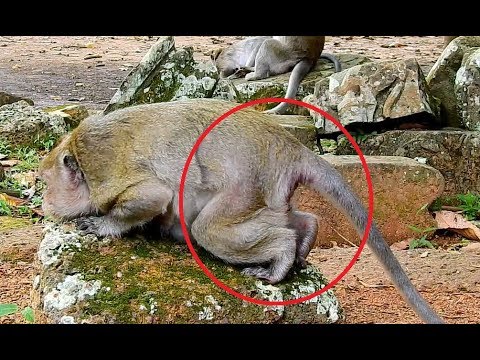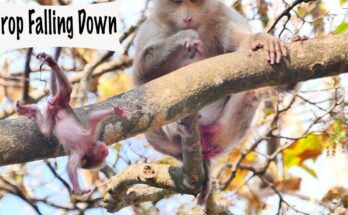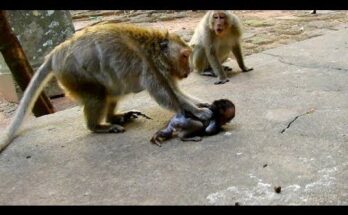The period leading up to childbirth is a crucial and delicate time for any living being, and monkeys are no exception. The pre-birth phase in monkeys—often referred to as the prenatal or gestational stage—is filled with fascinating physical and behavioral changes that prepare the mother for the arrival of her offspring. Understanding this phase not only sheds light on the biological processes of primates but also reveals the deep emotional and social intelligence embedded within monkey communities.
During the pre-birth stage, a pregnant monkey undergoes a series of physiological changes. Her belly gradually swells as the fetus develops, and she may show signs of fatigue, changes in appetite, and shifts in her normal activity levels. These signs are often more noticeable in the later stages of pregnancy. Depending on the species, a monkey’s gestation period typically ranges from about 4 to 7 months. Throughout this time, the developing fetus grows stronger, preparing for life outside the womb.
Behaviorally, pregnant monkeys often become more cautious. They may avoid risky situations such as climbing too high or engaging in intense social interactions that could cause stress. Some species exhibit nesting behavior, in which the expectant mother selects a secure and comfortable spot where she plans to give birth. This location is often shaded, safe from predators, and close to resources like food and water.
Socially, monkey groups tend to offer a form of communal support to pregnant individuals. In many species, especially those with strong group bonds like macaques or baboons, other females and even males may show interest in the pregnant monkey, sometimes grooming her more frequently or staying close by. This social closeness not only helps reduce stress but also provides added protection.
Interestingly, pregnant monkeys can sometimes form deeper bonds with other mothers in the group. These bonds may help when the baby is born, as experienced mothers often assist or support new mothers in caring for their infants. The anticipation of new life can shift the dynamics within a monkey troop, creating a temporary sense of calm and unity.
Emotionally, monkeys—like many primates—show signs of awareness regarding their condition. Some researchers believe that pregnant monkeys may experience mood swings similar to those in humans, although these are harder to measure scientifically. Still, the change in demeanor, increased affection, and moments of solitude observed in pregnant monkeys suggest a deep inner process as they prepare to give birth.
In summary, the pre-birth period in monkeys is a rich and complex phase marked by physical transformation, behavioral adjustment, and social adaptation. It reflects the intricate ways in which primates prepare for new life—not just instinctually, but emotionally and socially as well. Studying this stage helps us appreciate the shared traits between humans and our closest animal relatives, offering insight into the wonders of reproduction, maternal care, and group living in the animal kingdom.



